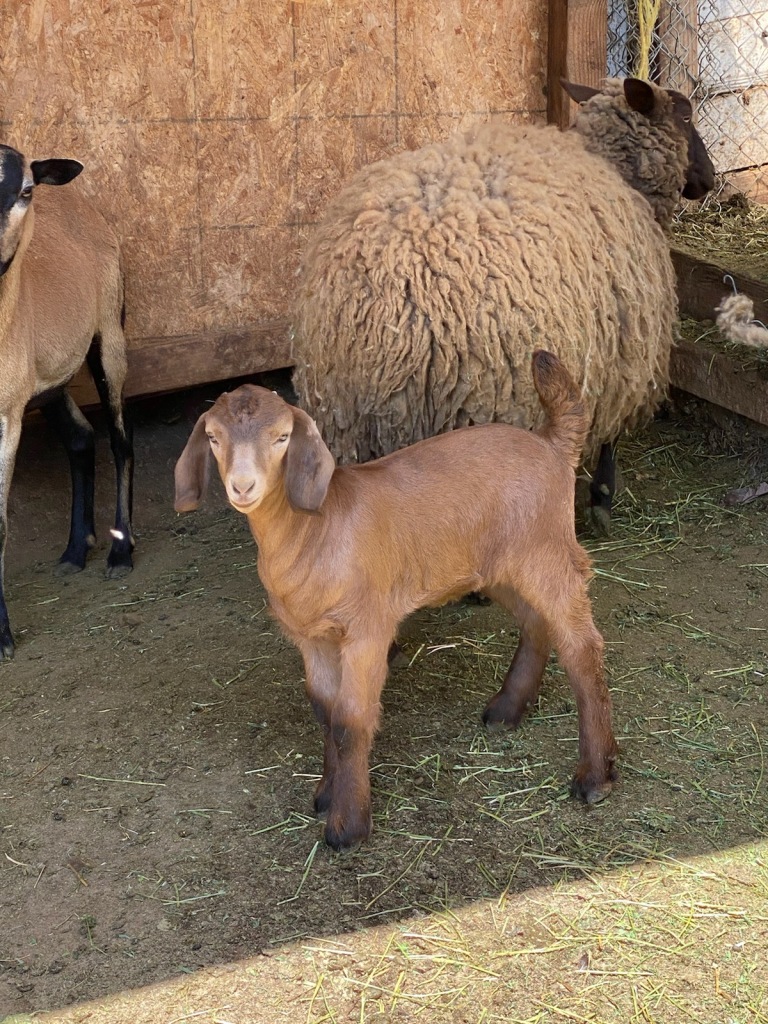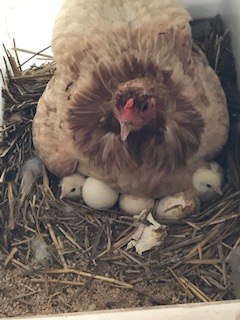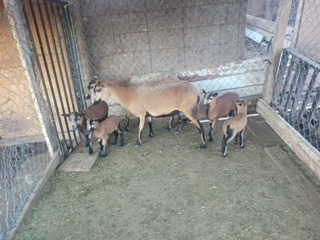
I had this epiphany while helplessly watching old avocado trees inevitably accept their slow demise. From what I know of the trees, we were both in our fifth decade, but most of them had seen and lived better days long before I got acquainted with them. They were already in need of convalescence before I undertook their care but sadly, failed to do so. Phytophthora cinnamomi, a distant cousin of the water mold that is blamed for the Irish potato famine, has decimated many quinquagenarians, 40+ feet tall avocado trees in California. It has caused them to wither and suffocate to a slow death. At the grove, this process took 8 months and many trees dried out into brittle, weak twigs. I observed the process of necrosis as an active yet helpless bystander. Time was not a healer in this incident. The old trees finally fell, seemingly exhausted from the struggle to retain their dignity and composure. The tallest and most majestic of the trees also withered. I wondered, perhaps it couldn’t continue to bear the weight of its living.
The many inhabitants of this tree, some insects, animals, birds, microbes, and fungi, slowly but sequentially devoured it to sustain their lives. When the tree was alive, it also consumed sunlight, water, minerals, and all it needed to thrive. It lay decaying and decomposing, a reminder that all must come to an end, and better still, all must return back to the basic molecules of life; leading me to the ultimate question! What is life? What is my life’s purpose, and what will become of me?
The thought is a little disturbing that I too will be consumed and devoured by a collection of living beings that will thrive on my physical remains while I return back to where and to whom we all belong. The irony is not lost on me but it’s the reality and the shame of taking a life to sustain my very own that reminds me to respect all that is living and that all that has been created is equally important in the eyes of nature. Life in every form must be respected and needs to be acknowledged to be understood. Our judgment of what’s important and what’s “necessary” is based on the myopia of what we think should be prioritized by what “we” believe that we need for our own survival. As if I, we, humans, matter any more than the dying tree or the root rotting fungus that is simply trying to complete its life’s purpose. Mortality is finite for a reason. No one has an upper hand except for the Creator. The complex relationship between nature and its inhabitants is trivialized by our limitations of all that we can see and conceive. The answers to our questions are not hidden, we simply have not developed the intellect or earned the right to solve what we think are the mysteries of life. o
Among my beautiful companions at the Razia’s Eden, I observe the ritual of a mostly harmonious balance between apoptosis and regeneration. I observe the fragility and resilience of life. Each day is a celebration, hope for a better tomorrow, and a reminder of the lost past. Each day an unheard cry for help, a silent battle between life and death. Each day a birthday, and each day a funeral.
Despite the drought and challenge of climate shifts, which have surely taken a toll, I am happy to say that the majority of the avocado trees have survived even with my futile intervention and are blooming into a verdant colony. I don’t call them “my” trees as they all belong to nature and are my chosen responsibility and not a possession. Those that have passed on, have left their offspring behind in the shape of a seed or a graft that keeps their legacy alive. They sacrificed, suffered, and sustained to create a better place for the next generation, but most of all they left without any expectations or burdens for the next generation. Each visit, I am reminded of my insignificance, again and again. I surrender and accept all there is, just as is.

Each hour I spend among them, I am reminded that all of God’s creations are equally interdependent and interconnected. Sometimes, despite repeated denial, I submit to the fact that we are all part of a food chain in a world of “eat and be eaten”. Perhaps that’s my rationalization for not feeling guilty about my omnivore palate. I have been nurturing plants of all kinds, cattle, goats, sheep, pheasants, pigeons, quails, partridges, chukars, francolins, guinea fowls, ducks, chicken, and many other Galliformes to appreciate their sheer beauty and consume them should I feel the desire to. I also raise them with love and as an untampered, healthy source of nutrition. This effort is an admonition that sharing life with all living beings is a responsibility. Especially the ones that I have chosen to place in a menagerie. I take pride in preparing their feed and watching them respond to my presence among them.
They have surprised me in more ways than I can count.
At Razia’s Eden, I have many nonhuman companions. Some slithering legless ones with rattles yet, others that are bipedal, along with 4, 6 & 8 legged. I often see a few that have many more legs than I have the patience to count. I am completely illiterate when it comes to the fluency of their language, but I am well versed with their sounds, expressions, actions, movements, courting behavior, and emotions. Their calls are very discernable. I pay attention to their calls of joy, laughter, cries, complaints, and disagreements, in a cacophonic mosaic vocabulary that is honest and perhaps longing to be understood. I have been listening to my companions without knowing a single syllable of their language. I have numerous ethnicities of chicken and they are all as colorblind as can be. Just proof that there is no such term as a pure breed. They are all pure and proud of who they are. Each one has its own accents, demeanor, and unique manner of speech. The roosters are indiscriminate lovers, while the hens are as discriminate as they can be. Roosters are probably the most aggressive of the whole lot, yet every now and then a mother hen shows them who the real puppeteer is. There is a social order to the coop and every new chicken has to go through the challenge of being accepted. It has to earn the right to be among the privileged or be an outcast. As such I now have multiple colonies of chickens who will welcome guinea fowls into their mix but would leave a newcomer chicken into a featherless, bloody mess if I don’t separate them. So much like humans, we accept others but so vehemently reject our own who are even a tad bit different from us. Despite all my efforts, myself included, I believe many of us treat other species better than some of our own species.
Earlier this year, my 2 Boer goats delivered 5 kids. One of the moms died due to the complications of birth along with a newborn. What’s ironic was that the mother goat that died, was extremely aggressive to other baby goats. She displayed punitive behavior when the other babies tried to nurse from her and would often butt them away. But her two babies only survived because the remaining mother goat generously and lovingly nursed the orphans along with her own offspring.

All four are fine and neither display any emotional scars nor physical ones. Just like humans, some are givers and some are takers, some just want to take care of their own, some share in all they have, while others see everyone else as competition.

This is another affirmation that compassion or humanity is not reserved for the two-legged primates who choose to destroy and consume all else. Despite it all, a character of abundance and scarcity is strictly not human, but a character of the living, irrespective of the form. My Silkie hen is just that cute as seen below, and she undoubtedly

is the Mother Theresa of all chickens. She is the most amazing mother to any chick that was hatched by her. She is loving and takes on all chicks from other birds I have, whether they were hatched in my incubator or through her surrogacy. Newborn chicks imprint just after hatching; I have placed several 3 or 4-day-old chicks to her brood and she accepts them, and cares for them as if they were all her own. While I have many hens that simply chase and even injuriously peck the “alien” chicks away. Her heart is as warm and soft as her fluffy feathers. There are many hens who care for all the chicks they hatch regardless of who laid the egg, but very few will take on an orphan or those that did not hatch.






Then, there are my boisterous polka-dotted Guinea fowls. They love to collectively greet an intruder with their sound alarm. I am not sure if they recognize the bucket of food more but they do greet me when I visit them. Their beautiful feathers are mesmerizing, one can stare at them and be lost in their mysterious beauty. They are curious and skittish at the same time. Very bold birds and fiercely protective if sitting on their eggs or with their hatchlings. I simply love their gait and their friendly gestures. They can raise a ruckus if they sense any danger. It’s hard to believe I began writing this last year when the rains had created several new creeks at the grove but they are all dry now. The last few weeks have been colder than usual and many deciduous trees have dropped their leaves. After a year of vigorous growth in every possible direction to soak up the sun’s warmth, and light while blossoming and fruiting, they dropped all their leaves baring their branches. I wonder if they also shed their ego and bare their soul in this yearly practice. Do they get stronger each time like the stalwart mulberry tree that has grown to be over 25 feet in the last 5 years? Perhaps it is their Ramazan that helps them cleanse their soul and reflect on the past. The persimmon, jujube (baer), cherry, almonds, apricot, peach, apple, pear, plum, and figs have all begun their journey to rebirth. I can see the new shoots peeking on the tips. Their blossoms will fill the air with fragrance and colors that will change the landscape. Even my stubborn, misplaced Mangoes have started their bloom while the citrus and cherimoyas are still loaded with fruit not knowing what to do while they wait for the spring weather to arrive. While in Karachi it behaved as an evergreen, the falsa has grown to a towering bush of over 10 feet and appears to have become deciduous. Most of the leaves are gone. I can see it getting impatient and ready to sprout new leaves, with each passing year it has lost the characteristics of a tropical plant. What an adaptive being. Many of these tropical plants have begun to shed their foliage with extreme hesitation as if they are afraid of tomorrow, but they overcome their fears, only to begin a new cycle with more vigor than the year before. This year tulips and wild flowers were early and abundant and the honeybees love to visit them.
The beehives at Razia’s Eden have added to the barakat of Razia’s Eden. They visit even the flowers that don’t offer them any pollen. I know their presence and hard work would result in a lot more fruits. I watch them hover from one flower to another and another. One can see the family resemblance to the roses in apricot, peach, plum, apple, and pear blossoms. The flamboyant flowers tempt the bees with their nectar but brush their anthers laden with pollens, gently and tenderly. The soft petals create a velvety carpet on which the bees, the ladybugs, ants, and aphids all take turns to seek shelter. The circle of life is also a circle of discovery. Each creature leaves a trail for another to follow.
The rebirth has not been limited to the flora. The four-legged have also been busy adding to their family. So far 5 new members have joined the family in the last 6 weeks. The score is not even close. Girls 4, Boys 1. December and January are the months only the black belly sheep give birth while the other breeds will give birth later in the spring. I can tell that these offspring are in much better shape and health. They were up and running within hours of their birth. The mother ewes are stronger and are far more experienced than last year.
I will post and write some more with the arrival of spring. It will be a busy time at Razia’s Eden.


Rehan : This is great: Share in LodiKatraBhayya
Sent from Yahoo Mail for iPhone
LikeLike
Such a lovely thought provoking sensitive read!!!❤️💕 there are so many more adjectives that I want to use, loved reading it!!!👏🏼👏🏼👏🏼
LikeLike
Damn.. that’s a good article.
Brief summary:
Mystery and purpose of life explained thru the eyes of Rehan as he raises and observes the beautiful animals at Razia’s Eden. Rehan realizes the animals behave as humans , some are givers some are takers, some love all, some love only their type, some dont even love their own. Rehan wonders if we humans are just animals, or are the animals human? Rehan realizes these animals are beautiful not only on the outside but also in the inside- how could one not admire and love these beautiful creatures.
At Razia’s Eden you observe the cycle of life everyday. Birth one day , funeral the next … ashes to ashes. Only the Creator understands all this mystery of life. Rehan wanders “what’s my purpose in life and what will become of me?” He watches the bees pollinate as if there is no tomorrow. It’s not only the flora but the 4 legged animals as well thriving and healthier this year. The avocado trees have a new lease on life. Rehan then figures out his purpose in life – love life and make a difference. Life is good.
Great article.
Your Friend,
Irfan Rashid
LikeLike
Mashaallah
You have written beautifully. It’s a splendid article that I want to read again and again. Razia’s Eden is spectacularly created with your dedicated efforts and sacrifice. May it always flourish with everlasting beauty.
LikeLike